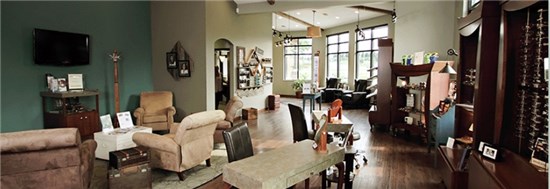By Gina M. Wesley, OD, MS, FAAO

Nov. 2, 2016
SYNOPSIS
Under health care reform, ODs are part of a patient’s wellness team. Build relationships with local MDs to increase your services and profits.
ACTION POINTS
ESTABLISH CO-MANAGING NEEDS. You will most likely need relationships with MDs for general ophthalmology, cataract surgery, refractive surgery, corneal consultation, oculoplastics and pediatrics. RESEARCH OD CREDENTIALS & REPUTATION. Meet in person with MDs and also meet with the employee in their office who is responsible for communicating with co-managing practices. COMMUNICATE EFFECTIVELY. Send the most pertinent information, which may only be the most recent exam data you have. When appropriate, send all exam data to show the history of the patient.
Health care reform mandates positive outcomes, with optometrists working as a team with every patient’s other doctors. Co-management is an increasingly important part of optometric practice. Position yourself in positive reciprocal relationships that enable you to work effectively with MDs in your community to provide the best total care for each patient. My practice has long relied on these relationships to provide patients with the best care possible, and to establish our reputation as full-scope eyecare providers. Establish Co-Managing Needs I regularly send patients to six different MDs for consults. I use these other doctors for general ophthalmology, cataract surgery consults, refractive surgery, corneal specialty consults, oculoplastics and pediatrics. In return I also reach out with the expectation that these MDs, and others, will send patients to me. The MD/OD relationship requires the efficient exchange of information. In our office, we created a standardized form that allows for a smooth process.

The reception area and optical in Dr. Wesley’s office. The comfortable atmosphere makes patients feel at home, but when necessary, Dr. Wesley is able to easily send patients to other doctors for additional care, thanks to the consult relationships she has forged with local MDs.
Meet Local MDs
I developed relationships with some of the doctors I co-manage with when I first opened my practice. Some I carried over with me from my first place of employment out of school, and some have developed as MDs have introduced themselves to me, and let me know the care they are capable of providing to my patients. I don’t speak to my “scope” of practice to patients, but I do educate them on what I can do to help them versus what other specialists (including other ODs) can do for them.
Research MD Credentials & Reputation
The most important aspect of choosing doctors to co-manage with is that you, the OD, feel comfortable and confident in the relationship. If you don’t, for whatever reason, patients will sense this and not feel confident either, and that could be to their harm potentially. Research, visit the MD, and do what you need to establish strong relationships. It’s important to have references from both other ODs, and patients who have been to the MD, to establish the reputation and outcomes the doctor has. It’s also important to meet with the clinical manager, or consult specialist, from the MD’s office to know how easily you will be able to schedule, how backed up the doctor is, if they are available for phone consult if needed, what sort of communication you expect to hear from them, when you will see your patients back, what sort of pre- and post-surgery care expectations there are, and what co-management fees (if applicable) are paid and when. It may be difficult to meet in person depending on the area of the country you live in, but this is always preferred if possible. A phone call is another way of at least talking to the doctor to see what they are like and to ask and answer questions and establish a relationship. I like to know the style of communication any surgeon has whom I send patients to, so I can prep my patients on what to expect. I can only control how my office handles communications, and not all MDs work as I do, so letting my patients know this ahead of time has been helpful in setting appropriate expectations. Send Only Most Relevant Info to MD Given how busy our offices are, I typically have my staff send the MD my most recent EHR encounters, or exams, as all of the exam elements are in there along with detailed plan notes regarding the patient and his/her care. Additionally, I can easily generate a letter from the patient’s record with my EHR that can be sent, via HIPAA-secure means, to other doctors. I only call in the most complex of cases, or send data that goes farther back than most recent visits for their review as necessary. Editor’s Note: It is essential when sending information about your patients to other doctors that you use a HIPAA-secure, and approved, means of communication. Click HERE for guidance on finding secure ways of communicating about patients with other health care providers. Request Info from MD I request a letter informing me about happened during the patient’s visit, and what the recommendations were following my patient’s visit and if my patient is following through. I also expect to hear about other visits the patient has with that doctor, so we are well aware of how we need to take over care after the patient has returned to us.
Inform Patient of the Co-Managing Doctor
You should let the patient know who the MD is, including the trusted relationship you have with them, and why you think they are the best MD for the patient’s particular issue, where they are located, and for any other reasons you can think of that would make the doctor a good fit for the patient. My staff usually handles the logistics such as scheduling the patient and giving them directions to the other doctor’s office. I also let the patient know that I’m not permanently sending the patient to the other doctor, but that I am sending them just for a particular service. I let them know they are going to a specialist for a specific reason, and then I will resume their care following their visit to the other practice.
Know When to End a Relationship with an MD
The most common reason for me ending a relationship with an MD is the MD not sending patients back to me. For instance, I had several situations where a LASIK doctor kept seeing patients for annual exams when those patients should have been sent back to my office for general eyecare. When I called this doctor and expressed my frustrations to him for doing this, he apologized and said it wouldn’t happen anymore….but it did. Thus, the relationship ended. Gina Wesley, OD, MS, FAAO, owns Complete Family Eyecare of Medina, Minn. To contact her: drwesley@cecofmedina.com



























